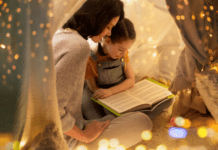“Charming.
Angelic.
Sweet.
Charismatic.”
These are the adjectives I typically hear after people meet my adopted daughter. At home, though, you would see a different picture. If I tell her no or we have to do anything that wasn’t her idea, she will purposely pee on the floor, throw tantrums for hours, hitting and kicking me, bite me, and sometimes even spit at me. She can’t be comforted. I just have to wait for her exhaustion.
Our daughter moved in with us at age four as our foster daughter. The tantrums were awful, but at the time she was still having visitation with her biological parents, so it was always painful and hard on her. At that time, we didn’t know how horrendous the first four years of her life had truly been. Even after her adoption at the age of five, her tantrums continued and even seemed to get worse. As she got older, the worse they got and the longer they lasted. My child’s tantrums started to affect me socially, emotionally, and at work.
When our daughter was six, we knew we needed to have her tested. We didn’t know what kind of things she had been exposed to before her life with us, and she couldn’t (or wouldn’t) tell us. She was diagnosed with Attention Deficit Hyperactivity Disorder, Post-Traumatic Stress Disorder, Oppositional Defiant Disorder, and Reactive Attachment Disorder (RAD). When we got the RAD diagnosis, I was discouraged, and honestly, terrified. I knew that foster and adopted kiddos that have RAD are difficult to work with, and sometimes never get better.
What is RAD?
Reactive attachment disorder (RAD) is a condition mostly diagnosed in children who have been neglected and did not form a healthy emotional attachment to their primary caregivers in infancy. The child was not soothed or comforted, and their needs were not met during those crucial first years of life. A significant number of children placed in foster care are eventually diagnosed with RAD. Children who spent a lot of time in the NICU or whose primary caregivers need to care for another sick loved one, or were absent for any reason, could also be diagnosed with RAD.
Children with RAD have a very difficult time attaching and showing love to their primary caregiver, but may show excessive love and attachment to perfect strangers. They have a hard time showing empathy and trusting others. These kiddos cannot regulate their emotions and have a very poor self-image. The lack of emotional attachment from their primary caregiver can affect these children into adulthood.
How are Adopted Parents Affected?
As parents of a child with RAD, we often feel isolated and alone. The outside world usually only sees our smiling and sweet daughter, but at home, we’re being abused and our house feels like a war zone. As the mother, I have borne the brunt of most of the abuse, and my husband and I have been pitted against each other. There are days that we just want to give up.
Many mornings, I lay in bed not wanting to get up because I don’t know which daughter I will get today. The smiling, happy child? Or the child that abuses me physically, verbally, and emotionally? The day might be going great, but then I ask her to take a shower and something flips, and she spends hours screaming, hitting, and throwing things. I try to comfort her, but because of RAD, she can’t stand to be comforted. I’ve tried to rock her while she’s throwing a tantrum, but I just end up getting hurt.
My husband and I must be prepared to leave public places with a screaming child. We have left stores, family functions, and even school. We have been embarrassed and judged so many times.
But sometimes we have those days and we see what everyone else sees, that sweet child. She loves us, and when we ask her to do something, she is happy to do it. We stay confused and just want to help her heal.
How Can Others Support Us?
It’s hard for friends and family outside of the home to know how to help when they don’t see exactly what happens on a day-to-day basis. Too many times we hear, “just keep loving her”. What these well-meaning people don’t understand, though, is that there is no amount of love that can fix RAD. Do they think we don’t love her enough? Love is the one thing we do have to give her, but our love is rejected. And that’s excruciatingly painful. Sometimes, it even feels like the more we love and care for her, the worse she gets. This phrase is the most frustrating thing we hear. So, what CAN others do and say to be helpful?
- Just be understanding! Recognize the structure that we must keep as a family, and empathize rather than judge when we have a meltdown in public. Asking if you can help carry packages while we carry a screaming child to the car is incredibly helpful!
- If you are comfortable babysitting a child with RAD, it would be a huge blessing to families coping with RAD. Parents of children with RAD don’t get out by themselves often, and don’t have many sitters because of their child’s behavior. My husband and I avoid leaving our daughter with anyone, because we are terrified that she will have a tantrum or hurt someone. So, we just don’t go anywhere. This takes a toll on our relationship (obviously).
- Giving unsolicited advice is not helpful for anyone involved. It frustrates the parents, who know their child best and see the full range of his/her behaviors.
Being a parent of a child with RAD is difficult and frustrating. Some days are good, and a lot of days are bad. We just cling to the good days and hope that one day the good days will outnumber the bad ones.


















